Home > Wisconsin > Wisconsin Farm to Table > Wisconsin’s Beekeeping Industry Is Buzzing
Wisconsin’s Beekeeping Industry Is Buzzing
In partnership with: Wisconsin Department of Agriculture, Trade and Consumer Protection.
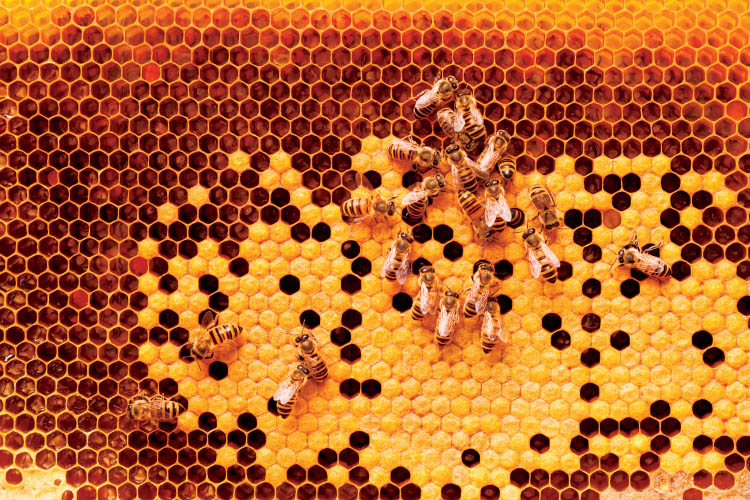
Wisconsin’s rich history of beekeeping stretches as far back as the late 1800s. Despite the cold climate that presented its fair share of challenges, local beekeepers pursued technological advancements and agricultural diversification to turn Wisconsin into one of the most impressive honey-producing states.
In 2018, Wisconsin hobbyists and commercial beekeepers produced 2.3 million pounds of honey valued at over $6 million, and the state ranked 16th in the nation for honey production.
Bees, Supplies and Transportation
Chris Hansen of Hansen Honey Farm in Rhinelander knew from an early age that bees were in his future. But little did he know that his beloved hobby would transform into the booming business operation it is today.
“We have a retail store where we sell honey directly to consumers,” Hansen says. “We also sell beekeeping supplies, packages of bees to start new colonies, and replacement queens for new and current beekeepers.”
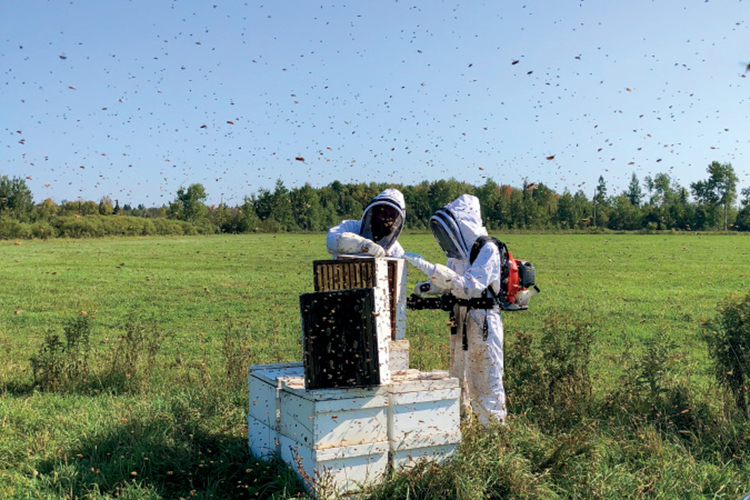
They also own and operate Hansen Honey Trucking.
“When we saw the demand for bees in the Northwoods, we expanded our orders for packages and began working directly with producers in California,” Hansen explains. “But we had trouble finding reliable transportation for the bees. That led to the decision to start our own trucking company.”
Also see: Why You Should Try Maple Syrup From Wisconsin
As their customer base grew and began asking Hansen Honey Farm to carry supplies, they quickly realized the need to expand.
Customers interested in dipping their toes into the beekeeping industry can find everything from honey and bees to honeybee consulting and beekeeping classes at Hansen Honey Farm.
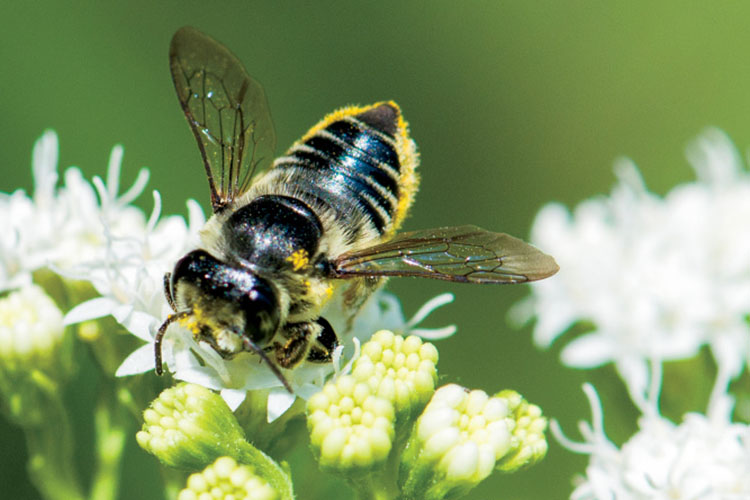
The Family Business
Eugene Woller of Gentle Breeze Honey in Mount Horeb says his affinity for beekeeping began when he bought his first seven colonies in 1965.
“It’s grown since then,” he says with a laugh. “We have about 600 hives now.”
The longer story involves his attendance at the University of Wisconsin-Madison, participation in an agricultural program for students interested in farming careers, a five-week session on beekeeping and a buddy who said, “How hard can it be?”
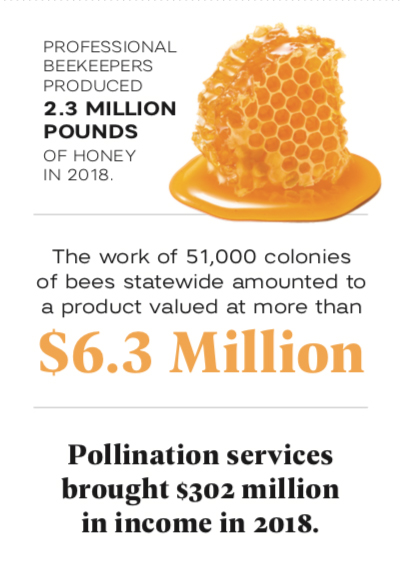
The bees of Gentle Breeze Honey pollinate Wisconsin’s prairie lands, dairy lands and small-scale vegetable farms, producing a beautiful golden honey with enhanced flavor and nutrition.
Woller says the bees have been abundantly good to him, providing him with a renewed passion for work, despite being at an age when one would traditionally retire to a life of leisure.
“People ask me all the time why I haven’t retired,” he says. “But I’m doing exactly what I want to do. I’m working with bees and selling honey. I have the opportunity to work side by side with my family. It doesn’t get much better than that.”
Also see: The Buzz About Wisconsin Pollinators
“Berry” Good Beekeepers
Adam Rezin and his wife are the third generation on their family-owned blueberry farm and cranberry marsh, Rezin Berries, LLC. While they used to rent bees for pollination, it grew increasingly difficult to find beekeepers to supply hives to pollinate their crops.
“We decided to take on the task ourselves,” Rezin says.
With help from a former beekeeper and friend, they started with 12 hives. After a successful first year, they increased their hives threefold. Each year, they grew more confident, and the number increased to 100.
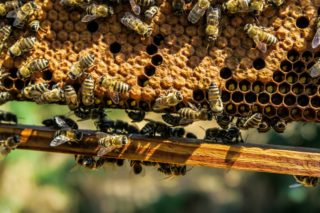
“We completely pollinate our own cranberry marsh now,” Rezin says. “We’re truly a family-run business, bees included.”
While the Rezin family raises honeybees only to sustain their operation, they do sell excess honey to locals and have enjoyed the transition into beekeeping.
“We’ve found that many beekeepers are willing to share their experiences to help you become a better beekeeper,” Rezin says. “We all ultimately want the same thing: healthy bees, good neighboring beekeepers, and to be good stewards of the environment.”



